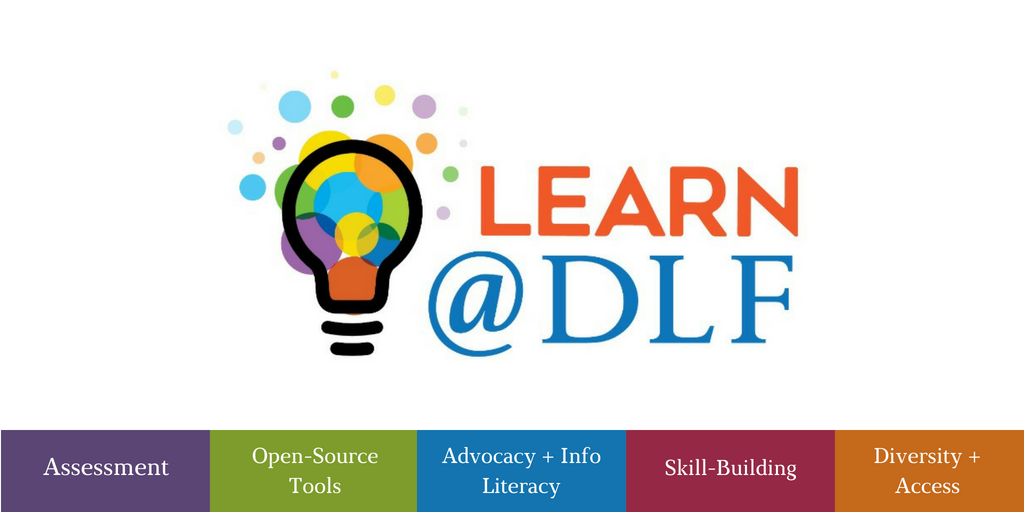The following post was written by Nicky Agate and Jason Rhody; two of the leaders of the HuMetricsHSS and the Value of Values session at Learn@DLF: a day of workshops proceeding the 2018 DLF Forum. Email us at forum@diglib.org to add it to your existing registration!
 Nicky Agate is Assistant Director of Scholarly Communication and Digital Projects at Columbia University
Nicky Agate is Assistant Director of Scholarly Communication and Digital Projects at Columbia University
 Jason Rhody is currently Director of the Digital Culture program, Social Data Initiative, and co-director of the Media & Democracy program at the Social Science Research Council (SSRC)
Jason Rhody is currently Director of the Digital Culture program, Social Data Initiative, and co-director of the Media & Democracy program at the Social Science Research Council (SSRC)
What if all the decisions and activities that go into our (often invisible) professional practice were made explicit, evaluated, and rewarded? When we catalog, or put on an exhibit, design a libguide, or collaborate with others on a digital project, how do we articulate goals to better measure our professional success? At our Learn@DLF workshop, the HuMetricsHSS team will work with participants to tease out the practices and decisions that go into information work, and how they are motivated by personal and professional values. Our first goal in this workshop is to start thinking together about the implicit or explicit values that underpin our professional activities, align those values with professional goals and activities, and begin to link them to professional and personal evaluation.
When we catalog, or put on an exhibit, design a libguide, or collaborate with others on a digital project, how do we articulate goals to better measure our professional success?[/ms_pullquote]
In the Value of Values workshop, HuMetricsHSS team members will guide you through a set of exercises designed to help you (and your colleagues) articulate the values that inform your professional life. You will work alongside other workshop participants to argue for, negotiate, and perhaps reformulate these values, with the goal of emerging in a space of productive compromise that allows for difference and mutual respect.
Consensus and compromise can be hard, but they are the basis of any shared understanding in an institutional setting. Being able to debate and articulate our own values, and listen to others express theirs, opens up space to think together about a framework for assessment and evaluation based on negotiated values, rather than on arbitrary, quantitative indicators of “excellence.” If you asked yourself what sort of support structure exists to guide, evaluate, and assess professional practices in your institution, would you be able to answer? Is that structure imposed from the top down, separated from mission statements, or dictated by altmetric or administrative algorithms? Is there an evaluative framework against which you can test the decisions in the teaching, collecting, cataloging, mentoring, assessing, project managing, or publishing that make up your day-to-day work as an information professional? And how does that framework, if it exists, express an enactment of personal or purported institutional values?
Being able to debate and articulate our own values, and listen to others express theirs, opens up space to think together about a framework for assessment and evaluation based on negotiated values, rather than on arbitrary, quantitative indicators of “excellence.”
Chances are, it doesn’t—but it could. In the Value of Values workshop, we will share a framework for discussing and negotiating values, with the aim of helping you to establish a departmental or institutional approach to evaluating library work that allows for and incentivizes the performance of those values.
Get more information about Learn@DLF on our website. Ready to enroll? Email forum@diglib.org to add HuMetricsHSS to your existing Forum registration.

